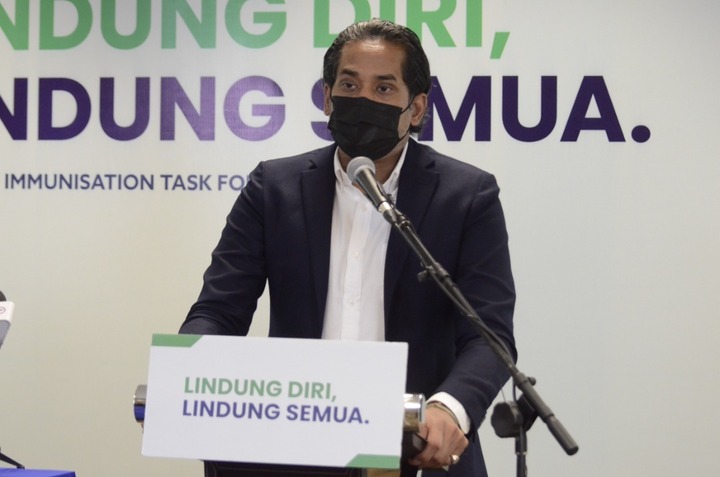KUALA LUMPUR, June 30 — Khairy Jamaluddin said today there will be no mixing of vaccine doses at the current stage, maintaining that AstraZeneca-Oxford vaccine recipients will receive a second AstraZeneca dose.
The vaccine minister said the government is still studying a mixed schedule of vaccines in light of a recent UK study that found a mixed two-dose schedule of the Pfizer-BioNTech and AstraZeneca vaccines — based on four weeks’ interval between doses — can produce a better immune response than two doses of AstraZeneca.
“For AstraZeneca, the second dose will be AZ. Although the expert technical working group has presented to JKJAV (Special Committee on Ensuring Access to Covid-19 Vaccine Supply) early real-world data on heterologous vaccinations, we are still studying.
“The thing is still inconclusive for us to make a decision to mix vaccines here in Malaysia. We will continue to study that and once a conclusive decision can be made, we will make an announcement.
“But for now, you will be given the same second dose as your first dose. So, if you received the AstraZeneca for your first dose, you will receive the AstraZeneca for your second dose,” Khairy said at a joint media briefing with Health Minister Dr Adham Baba.
He added that the government will announce tomorrow its decision on proposals to reduce the dosing interval for AstraZeneca that is currently set at 12 weeks between two doses.
A separate study by Oxford University recently discovered that a delayed second dose of the AstraZeneca vaccine and a third booster shot can result in better immunity against Covid-19.
The results of its clinical trials showed that a delay of up to 45 weeks between the first and second doses — four times the currently recommended 12-week interval — led to higher antibody levels and enhanced immune response after the second dose.
Researchers of the study said the finding offers greater flexibility in vaccination schedules, especially for countries that are facing Covid-19 vaccine supply shortages.
Health director-general Dr Noor Hisham Abdullah, in a tweet earlier today, said one dose of the Pfizer or AstraZeneca vaccine only provides about 33 per cent protection against symptoms from the Covid-19 Delta variant.
Two doses of the Pfizer vaccine provided 88 per cent protection, while two doses of AstraZeneca provided 60 per cent protection against symptoms. Dr Noor Hisham was referring to a May study by Public Health England (PHE) on vaccine efficacy against the Delta variant.
Another PHE analysis published in June further showed that the Pfizer vaccine is 96 per cent effective against hospitalisation after two doses, while the AstraZeneca vaccine is 92 per cent effective against hospitalisation after a second dose.
“On the tweet, I think he (Dr Noor Hisham) was merely putting out the data we have received on the vaccine effectiveness towards the Delta variant of concern (VOC).
“But what I’d like to stress here is that whether it is the Pfizer, the AstraZeneca or even the Sinovac vaccine — and we’ve seen this through real-world data from Indonesia where there is a prevalence of the Delta variant — it still protected health care workers (in Indonesia) from severe Covid-19 that includes hospitalisation, ICU admissions and death from Covid-19.
“Therefore, I think the message here is although there may be some variants in terms of the effectiveness of vaccines against the Delta VOC, it still protects. So, whatever vaccine that you are offered, please take that vaccine,” Khairy said.
The science, technology and innovation minister also noted that Malaysia will receive donations of Covid-19 vaccine doses from Japan and the US this week.
He said the country will receive one million doses of the AstraZeneca vaccine from Japan tomorrow, while one million Pfizer doses will arrive from the US on Friday.
To date, Khairy said a total of 9,383,114 doses have been distributed nationwide. This involves 4,526,730 Pfizer doses, 4,030,684 Sinovac doses and 825,700 AstraZeneca doses.
As of June 29, a total of 7,824,912 coronavirus vaccine doses have been administered. This means there are some 1.6 million doses left in storage.








